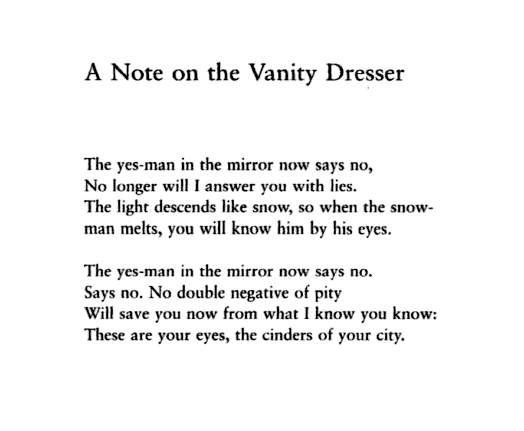
A most gentle warrior.
A few days ago, I wrote about poems as memorable speech, and the kind of poem that lodges in your brain and won’t leave. William Jay Smith wrote a dark and magical one, and it’s carved in my memory. It’s his enduring gift to me now.
Smith died on Tuesday, August 18, at the age of 97. From the New York Times obituary yesterday:
Mr. Smith’s poems for adults were praised for diction that was at once unfussy and lyrical; for thematic variety (they ranged over the natural world, erotic love, the experience of war, his Choctaw ancestry and many other subjects); for their ability to see minutely into everyday experience; and for a deceptive simplicity that belied the rigorous formal architecture beneath.
He embraced poetic devices, like rhyme and carefully calibrated meter, that many 20th-century colleagues considered passé — a self-imposed set of strictures that, critics said, gave his best work the sheen of something meticulously constructed, buffed and polished.
I met him at a West Chester Poetry Conference a dozen or so years ago. Too briefly to make much of an impression, except that he was courteous, gentle, and humble. He didn’t make much of his Native American ancestry, though it was patterned on his face. As I recall, he read from his poems on the Trail of Tears during the conference, and I bought one of his books as a result. Luckily, I was able to find it on my shelf this morning. As I thumbed through, I found this one, “The Eagle Warrior: An Invocation” from his 1997 collection The Cherokee Lottery, about a life-size ceramic man costumed as an eagle, thrown into a lake by the conquistadors and for that reason, and only that reason, it survived. This is how the invocation concludes:
O Eagle-warrior, surrogate of the sun,
. fly off in my mind now
to circle the sun, that “ascending eagle,”
and with your penetrating eye
and your calligraphic wing-span
. printed high upon the air,
follow the westward movement
. of every vanquished tribe.
O Eagle-warrior, quick-eyed, fierce-beaked,
. tense-taloned,
be their emblem, be their witness, be their scribe.
 Richard Wilbur called him “a most gifted and original poet … One of the very few who cannot be confused with anybody else.” Dana Gioia wrote that his best poems “are unlike anything else in contemporary American literature … Although often based on realistic situations, Smith’s compressed, formal lyrics develop language musically in a way which summons an intricate, dreamlike set of images and associations.” And X.J. Kennedy said that he “has given us many of the truest and purest poems an American has written: the most resonantly musical, the most magical.”
Richard Wilbur called him “a most gifted and original poet … One of the very few who cannot be confused with anybody else.” Dana Gioia wrote that his best poems “are unlike anything else in contemporary American literature … Although often based on realistic situations, Smith’s compressed, formal lyrics develop language musically in a way which summons an intricate, dreamlike set of images and associations.” And X.J. Kennedy said that he “has given us many of the truest and purest poems an American has written: the most resonantly musical, the most magical.”
Smith authored over fifty books of poetry, children’s verse, literary criticism, and translation. Noted for his prodigious career, which spanned the fields of creative writing, translation, academia, and politics, Smith served a two-year term in the Vermont House of Representative, from 1960 to 1962, and also served as a poetry consultant to the Library of Congress (the position now known as the U.S. poet laureate) from 1968 to 1970. Smith was also a member of the Academy of Arts and Letters since 1975, as well as a former vice president for literature.
As noted over at poets.org, Smith’s honors include the Henry Bellamann Major Award, the Russell Loines Award from the National Institute of the Arts and Letters, a grant from the National Endowment for the Arts, and fellowships from the National Endowment for the Arts and the National Endowment for the Humanities. In 2002, he received a lifetime achievement award from the Louisiana Center for the Book. He also received honors from the French Academy, the Swedish Academy, and the government of Hungary for his translations.
Ah yes, the poem that lodged in my brain:

Tags: "Dana Gioia", Richard Wilbur, William Jay Smith, X.J. Kennedy

